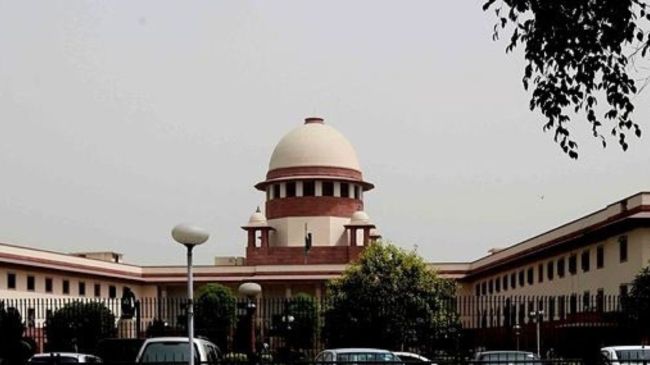Opinion Secretly recording your spouse’s conversation doesn’t protect ‘dignity’. Supreme Court must understand this
Dignity cannot be a one-way street. It must be available to the person being mocked and the person being watched.
 selective application of dignity not only creates doctrinal confusion but also erodes trust in the Constitution’s promise of equality. It raises uncomfortable questions: Whose dignity matters in our courts? Is it the institution’s dignity or the individual’s?
selective application of dignity not only creates doctrinal confusion but also erodes trust in the Constitution’s promise of equality. It raises uncomfortable questions: Whose dignity matters in our courts? Is it the institution’s dignity or the individual’s? Few constitutional values enjoy as much reverence as dignity. It is woven into the very language of Article 21, repeatedly reaffirmed by the Supreme Court in landmark cases —from Puttaswamy to Navtej Johar — as the foundation of liberty, privacy and autonomy. But dignity is a value that must be applied evenly. In recent weeks, however, its use by the judiciary has been both expansive and evasive: Expansive when it comes to protecting powerful institutions from speech, and evasive when it concerns the lived realities of surveillance and coercion faced by the vulnerable.
In the ongoing case against comedian Samay Raina and others for allegedly mocking persons with disabilities, the Supreme Court orally observed that the right to dignity under Article 21 is higher than the right to freedom of speech under Article 19(1)(a). While aimed at addressing offensive content, the formulation risks tipping the balance too far in favour of “subjective hurt over demonstrable harm”. This is not an isolated trend. In other recent hearings, including one involving a cartoon critical of the Prime Minister, the SC granted relief while simultaneously observing that the cartoon “definitely attracts penal action”. In such cases, dignity is being invoked not just as a shield for the vulnerable but as a sword to suppress dissent and satire — tools central to any democratic culture.
Now, contrast this with the recent decision of another bench of the Supreme Court in Vibhor Garg v. Neha. Here, the Court held that a husband’s secretly recorded phone conversations with his wife were admissible in divorce proceedings. The judgment upheld the exception in Section 122 of the Indian Evidence Act, which permits disclosure of spousal communications in matrimonial litigation. The Court reasoned that such recordings advance the constitutional right to a fair trial, completely overlooking the gendered power dynamics that mark many Indian marriages and ignoring the constitutional standard laid down, in Justice K.S. Puttaswamy v. Union of India, which held that any intrusion into privacy must pass a four-part proportionality test: Legality, legitimate aim, necessity, and minimal intrusion.
This contrast between invoking dignity to restrict satire on the one hand and ignoring it in the face of domestic surveillance on the other reveals a troubling pattern. Dignity is often extended to shield the sentiments of institutions and the powerful, but rarely deployed to protect those more vulnerable — women, minorities, queer individuals, or those historically excluded from full citizenship.
This is not how constitutional values are meant to function. In Shreya Singhal v. Union of India, the Court rightly struck down Section 66A of the IT Act, holding that speech could be restricted only when it incites imminent lawless action. The judgment established a high threshold for state interference in speech, grounded not in emotional reaction, but in demonstrable harm. Similarly, in Selvi v. State of Karnataka, the Court refused to allow narco-analysis without consent, recognising the psychological and bodily integrity of the accused.
In both cases, the Court protected individual autonomy and dignity against state or institutional overreach. But in Vibhor Garg, the Court failed to extend the same reasoning within the intimate — and often unequal — domain of the home.
This selective application of dignity not only creates doctrinal confusion but also erodes trust in the Constitution’s promise of equality. It raises uncomfortable questions: Whose dignity matters in our courts? Is it the institution’s dignity or the individual’s?
A rights-sensitive approach must ask deeper questions: Was the act of surveillance itself abusive? Was the evidence obtained through coercion or manipulation? Does admitting it advance justice, or merely legalise private control? Without such inquiry, the law risks reinforcing the very hierarchies it claims to dismantle.
Dignity cannot be a one-way street. It must be available to the person being mocked and the person being watched. It must protect the state’s critics and the domestic survivor. The Constitution demands that dignity be more than a tool to silence. It must be a principle to protect, especially when power is uneven.
Until our courts apply dignity with such consistency and courage, we will continue to confuse sentiment for principle, and suppress freedom in the name of protection.
The writer is a practising advocate and founder of Project Saathi. Views expressed are personal






